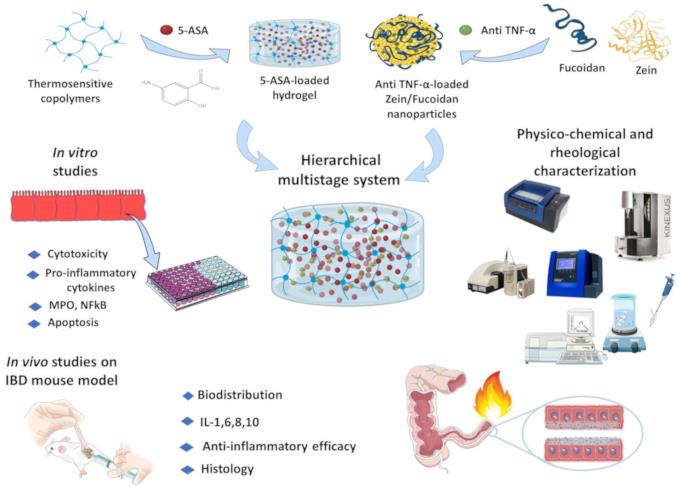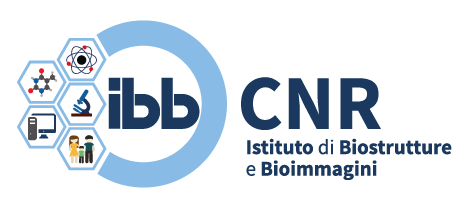Description
The project aims to set up a next generation of multistage formulations to be injected by rectal administration for the treatment of inflammatory bowel diseases (IBD). Hence, the interactions between various biomaterial-based systems and the bowel mucosa will be studied in order to improve the safety and efficacy of anti-inflammatory drugs already used in clinical practice. To reach this goal, the Research Units will design a panel of systems and hierarchical formulations containing various active compounds, characterized by a different composition and physico-chemical properties. Thermo-sensitive hydrogel containing hybrid nanoparticles will be designed to entrap conventional drugs (i.e. mesalazine) and biological molecule (anti-TNFα) in order to act on the local and systemic phenomena of inflammation, exploiting the muco-adhesive features of the used biomaterials.
The proposed formulations will be tested in vitro and in vivo to evaluate how their peculiar properties may affect toxicity and the pharmacological activity of the drugs in order to identify the safest and most efficacious multistage system to be injected by rectal route.
The hierarchical multicomponent systems will be designed to decrease the side effects of the entrapped active compounds, avoiding the use of invasive and multiple administrations thanks to the bio/muco-adhesive features of the biomaterials used. High-resolution in vivo imaging technologies will provide the opportunity to evaluate in real time, in a quantitative way, at the molecular level, the real efficacy and distribution of the proposed systems.
The multistage formulation is expected to provide not only a controlled release of various anti-inflammatory drugs, representing a novel therapeutic option for the patience suffering of IBD, but also to exert a positive effect on their social life.

Objectives and expected results
The IBB-CNR unit will perform in vitro experiments on the anti-inflammatory activity of the different components of the multistage system on colon epithelial cells and activated macrophages.
Next, it will perform in vivo experiments on the effect of the multistage system on local and controlled release of anti-inflammatory drugs in a murine model of chemically induced colitis. Molecular imaging techniques including ultrasound with high-frequency probes and optical tomographic imaging with NIR probes will be used to assess the response to treatment and to visualize the interaction of the multistage system with the intestinal mucosa. The vital parameters of the mice and those related to the degree of colitis present (weight loss, stool consistency and presence or absence of faecal blood) will be assessed daily by experienced veterinarians. In addition, at the end of the treatments, histopathological and ELISA analyses of inflammatory markers will be performed.
Project proponents
- Università degli studi “Magna Graecia” di Catanzaro
Involved entities
- Istituto di Biostrutture e Bioimmagini-CNR

